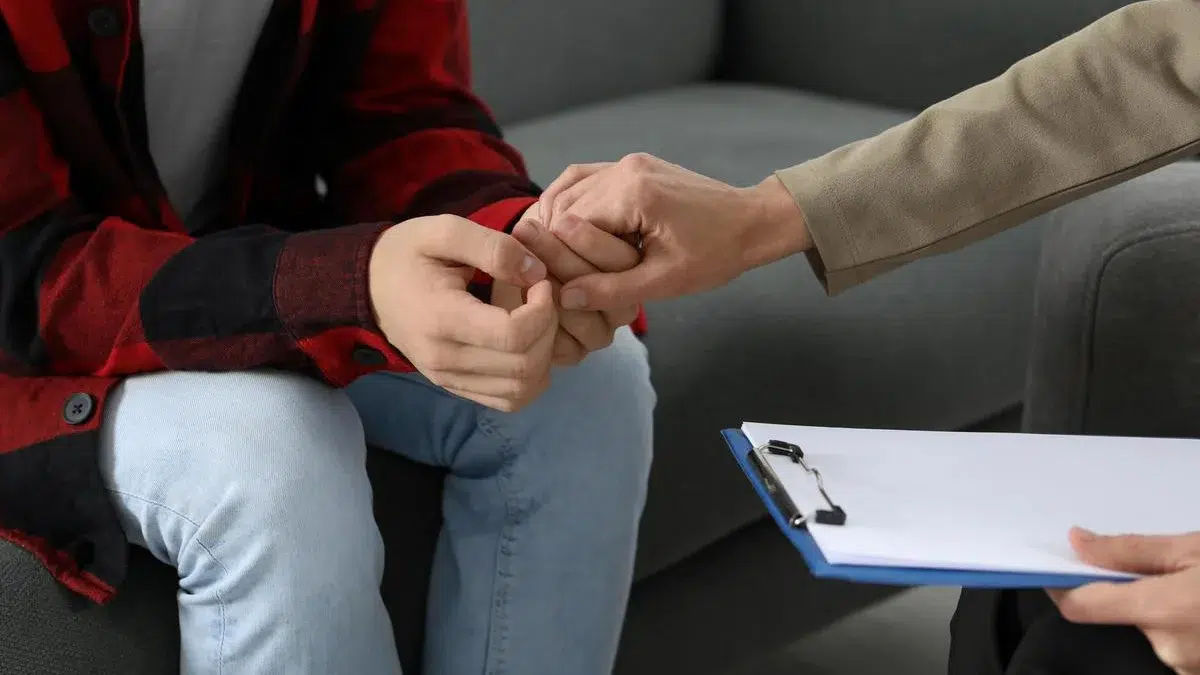
How to Safely Detox From Alcohol
Learn the safe ways to detox from alcohol with The Recovery Team. We offer tips and tricks so you can live a life free from addictions.

As first responders, including police officers, firefighters, emergency medical technicians, and others, you selflessly put your lives on the line every day to serve and protect our communities. We at the Recovery Team recognize that the pressures and traumas associated with your profession can lead to substance abuse and addiction, which is why we offer tailored treatment programs to address your unique needs.
Our experienced team of medical professionals, counselors, and therapists understand the challenges that first responders face, and we are committed to helping you overcome addiction and regain control of your lives. We provide a safe and supportive environment where you can receive the care and resources you need to achieve lasting recovery.
Whether you are seeking help for yourself or a loved one, we are here to support you on your journey to a healthier, happier life.
First responders are often exposed to traumatic events and high-stress situations in the course of their work. This can include witnessing accidents, violence, and death, as well as dealing with the aftermath of natural disasters and other emergencies. These experiences can take a toll on their mental and emotional well-being, leading to conditions such as depression, anxiety, and post-traumatic stress disorder (PTSD).
Unfortunately, some first responders may turn to drugs or alcohol as a way to cope with the stress and trauma of their jobs. Substance abuse can provide temporary relief from the intense emotions and physical demands of their work, but it can also lead to addiction and other negative consequences.
In addition, the culture of first responders can make it challenging for individuals to seek help for substance abuse or mental health issues. There may be a stigma surrounding these conditions, and fear of repercussions such as job loss or a damaged reputation may prevent individuals from seeking treatment. This can lead to a cycle of addiction and avoidance of help, which can ultimately harm both the individual and their ability to perform their duties effectively.
First responders demonstrate immense courage when dealing with life-threatening situations and high-pressure conflicts. They use their inner strength and bravery daily to safeguard our communities, protect our homes, and ensure the safety of our loved ones. As the people we depend on during our most desperate and challenging moments, they play a vital role in the world of emergency services.
Our Recovery Team’s treatment programs recognize the selfless commitment of first responders and provide custom-tailored care for each individual. If you are using drugs or alcohol to cope, we believe in your ability to change and recover. As you protect our communities and homes, we are dedicated to offering drug addiction treatment that fits your unique medical and mental health needs.
You have the courage and strength to control violent situations, mitigate natural disasters, respond to emergencies, heal people, and save lives. We aim to return the favor by supporting you on your journey toward lasting recovery.
First responders, such as police officers, firefighters, emergency medical technicians, and others, are exposed to potentially traumatic events on a regular basis, such as accidents, violence, disasters, and death. This can result in a range of mental health challenges, including depression, anxiety, post-traumatic stress disorder (PTSD), and suicidal thoughts.
The nature of their work can also lead to chronic stress and burnout, which can impact their overall mental health and well-being. The pressure to constantly perform at a high level, make split-second decisions, and witness human suffering can take a significant toll on their mental health.
In addition, the culture of first responders can make it challenging for individuals to seek help for mental health issues. There may be a stigma surrounding these conditions, and fear of repercussions such as job loss or a damaged reputation may prevent individuals from seeking treatment. This can lead to a cycle of avoidance and worsening mental health, which can ultimately harm both the individual and their ability to perform their duties effectively.
Treatment for addiction among first responders typically involves a personalized approach that combines evidence-based therapies with specialized care. To address the high-stress nature of their work, treatment providers may use trauma-informed therapies like CBT, EMDR, and MBSR to help manage any underlying trauma or PTSD.
Additionally, providers may focus on developing coping mechanisms and strategies to prevent relapse by teaching stress management techniques, relationship-building skills, and other healthy habits. In some cases, medication-assisted treatment may be used to manage withdrawal symptoms and cravings.
Given the unique challenges faced by first responders, treatment may also include specialized support and resources such as peer support groups and counseling sessions with other first responders. Treatment providers may also work closely with employers to ensure that first responders receive the support needed to maintain recovery and continue to perform their duties effectively.
As addiction treatment practitioners, we believe that all individuals should have the opportunity to feel safe and recover, irrespective of their job or strength. For first responders, who are often exposed to traumatic experiences, we provide evidence-based and scientifically proven healing methods.
Recognizing that each person’s journey to sobriety is unique, we offer personalized care and care plans for first responders. Our tailored care can help address the specific challenges faced by first responders, especially those dealing with trauma on a daily basis.
Our objective is to support first responders in their journey toward recovery by offering personalized care that matches their unique needs and diagnosis. If you’re a first responder struggling with addiction, we encourage you to reach out to The Recovery Team to discover how our compassionate and evidence-based approach can assist you.
Together, we can identify the best recovery plan for you, whether it’s residential rehab, or outpatient program services, based on your health and insurance. Our ultimate goal is to assist you in overcoming addiction, restoring hope, and finding purpose in life once again.
Summon Your Bravery. Take Action. If you’re facing post-traumatic stress disorder or any other co-occurring mental health issue, our treatment centers are available to help you work through traumatic experiences and reduce the impact of addiction on your life, loved ones, and community.
Begin your journey to recovery from drug addiction and receive treatment from our knowledgeable professionals. Contact us at (800) 817-1247 to learn more.

Learn the safe ways to detox from alcohol with The Recovery Team. We offer tips and tricks so you can live a life free from addictions.

Can grief cause alcoholism? The Recovery Team explains the connection between grief and alcohol addiction.

The Recovery Team explains the effects of alcohol on pregnancy and the importance of recovery before pregnancy.